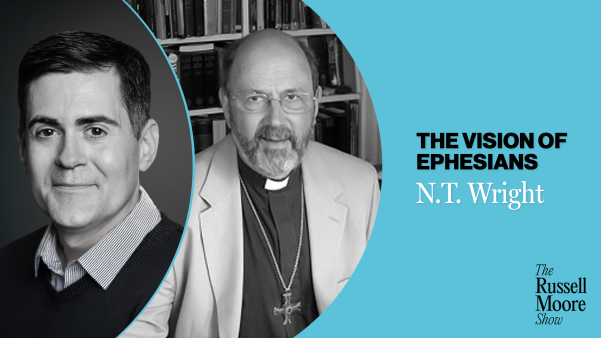I have an account to settle with Carl Henry. It is too late to personally settle it with him—although I hope the Lord eventually gives me the chance to do that in the hereafter. For now, though, I can at least set the record straight in the pages of this magazine, which Dr. Henry served so capably as Christianity Today's first editor.
The story starts in the fall of 1967 when, as a Ph.D. student in philosophy at the University of Chicago, I received a phone call from Henry. A few weeks before I had sent an essay to him, outlining what I took to be a proper evangelical approach to the sub-discipline of social ethics. Henry told me that he very much liked my piece for its critique of liberal Protestantism's approach to the field, and wanted to publish it. He had only one revision to suggest—a minor one, he insisted. At the point where I said that it was indeed important for the church to on occasion take a stand on some specific question of social justice, he preferred to have me speak of the need for individual Christians to take such a stand.
The essay was the first piece I had ever submitted to any periodical beyond the world of on-campus publications. Needless to say, I was thrilled to get this kind of personal attention from one of my evangelical heroes. But I was also troubled by the change he was proposing. This was a period in my life when I had often felt alienated from evangelicalism because of what I saw as its failure to properly address issues raised by the civil rights struggle and the war in Southeast Asia. As a corrective, I wanted the church, as church, to acknowledge its obligation to speak to such matters. So I responded by telling Henry that I did not see his proposed change as a minor bit of editing. As much as I would be honored to see my essay appear as an article in Christianity Today, I said, I could not approve the formulation he was suggesting.
Henry thanked me for my time, and the conversation ended. But over the next two weeks he called several times, on each occasion urging me to accept some revision. At one point, for example, he asked me to approve a statement to the effect that the church should regularly articulate general principles that bear on social concerns, leaving it up to individuals to actively apply those principles to social specifics. I rejected that way of putting the case.
His final call set forth what he presented as some compromises. And I accepted them, albeit with some reluctance. Thus, where I had referred to "the church's duty" to address the topic of civil rights, he had substituted a revision that spoke, with some ambiguity, of a "Christian duty with respect to the civil rights of human beings."
And while he kept my insistence that the church itself must on occasion address social specifics, he limited its role to the making of negative pronouncements. He had me saying that the church can say "no" to things that are happening in the economic and political realms, without mentioning anything about the church legitimately endorsing specific remedial policies or practices.
Here is how the case was put in the published version of my essay: "[I]t is often necessary for the church to take an unequivocal stand against prevailing economic, social, and political conditions, even where it is practically impossible to offer any solution" in terms that don't draw on extra-theological "'theoretical and empirical' analysis."
Five principles of engagement
In his biography, Confessions of a Theologian, Henry makes it clear that there was much going on in the background during the time we were having those phone conversations. He goes into much detail about how, during this period, he was attempting to take on social issues in a reasonable manner in his editorial role, while also pleasing J. Howard Pew, president of the Sun Oil Company, who was contributing much-needed funding for the magazine.
Henry's obvious worries that Pew might be troubled by my article were confirmed by the fact that, after my essay appeared in print, Pew wrote to complain about what he saw as my insistence that "the church must often take a stand on economic, social, and political issues." In reporting on this in his memoir, Henry explains how he defended me to Pew.
"Mouw's essay, I wrote in reply, had clearly stated that the church cannot offer legislative or military specifics, and is on safer ground, moreover, when it voices a negative verdict on the status quo." Henry goes on to set forth what he explained to Pew as the five principles that had consistently guided his editorial policy on such matters in the magazine's pages:
- The Bible is critically relevant to the whole of modern life and culture—the social-political arena included.
- The institutional church has no mandate, jurisdiction, or competence to endorse political legislation or military tactics or economic specifics in the name of Christ.
- The institutional church is divinely obliged to proclaim God's entire revelation, including the standards or commandments by which men and nations are to be finally judged, and by which they ought now to live and maintain social stability.
- The political achievement of a better society is the task of all citizens, and individual Christians ought to be politically engaged to the limit of their competence and opportunity.
- The Bible limits the proper activity of both government and church for divinely stipulated objectives—the former, for the preservation of justice and order, and the latter, for the moral-spiritual task of evangelizing the earth.
Having made his case to Pew, Henry reports that "[t]hereafter I received only infrequent correspondence; little if any of that pertained to the church in politics." By itself, of course, this could have been a sign that the oilman was satisfied with Henry's account. But the larger narrative does not allow for this interpretation of Pew's lack of communication. It is clear, for example, that Pew was instrumental in eventually moving Henry out of his editorship, desiring—as Henry puts it in his autobiography—"a more aggressive denunciation of ecumenical perspectives," particularly as they related to political and economic questions.
Sometimes the church must say 'no!'
Here is what I need to say now about my youthful negotiations with Carl Henry: Henry was right and I was wrong. At the time I agreed to Henry's revision of my draft, I only grudgingly accepted what I considered a less-than-fully satisfactory compromise arrangement. What I really wanted to say is that the church—in the form of both preaching and ecclesial pronouncements—could do more than merely utter a "no" to some social evils. There were times, I was convinced, that the church could rightly say a bold "yes" to specific policy-like solutions. I now see that youthful conviction as misguided. Henry was right, and I was wrong.
In pushing me on this subject, Henry was not merely trying to avoid offending a significant funding source. The second point of the five principles that Henry summarized for Pew had long been a major theme in his reflections on the church's public calling.
For example, in his now-classic 1947 jeremiad, The Uneasy Conscience of Modern Fundamentalism, Henry had complained that the evangelical ministers of his day were not addressing important social concerns. In the early pages of his book, he tells us that he had recently posed this question to a group of evangelical pastors about their preaching:
How many of you, during the past six months, have preached a sermon devoted in large part to a condemnation of such social evils as aggressive warfare, racial hatred and intolerance, the liquor traffic, exploitation of labor or management, or the like—a sermon containing not merely an incidental or illustrative reference, but directed mainly against such evils and proposing the framework in which you think solution is possible?
Not one of the pastors, he reports, could testify that he had preached such a sermon.
Note that in urging pastors to address social concerns, Henry is careful to limit their role to the no-saying function. He wants from them a "condemnation" of selected social evils. They are to speak "against" such things. What they are to offer in positive terms is not practical solutions, but the "proposing [of a] framework in which you think solution is possible" (emphasis mine).
In the months immediately preceding my telephone conversation with Henry, he had taken up this theme at some length in Christianity Today's pages. In a feature article, along with an accompanying editorial in the September 15, 1967, issue, Henry praised Princeton University ethicist Paul Ramsey for the way he had criticized ecumenical Protestantism in his recent book, Who Speaks for the Church? In particular, Henry praised Ramsey's critique of ecumenical Protestantism's way of issuing what Henry describes (paraphrasing Ramsey) as "a staggering number of resolutions that support particular positions." And the issue for Ramsey was not just the sheer number of pronouncements, but also a methodology that flowed from a defective theology. Henry quotes Ramsey's harsh verdict: "Identification of Christian social ethics with specific partisan proposals that clearly are not the only ones that may be characterized as Christian and as morally acceptable comes close to the original New Testament meaning of heresy."
While endorsing the general thrust of Ramsey's case, Henry was careful not to let evangelicals off the hook. This important critique should be the occasion, Henry insisted, for evangelicals "to consider what they may properly say to the world about social justice." The church is obliged to "declare the criteria by which nations will ultimately be judged, and the divine standards to which man and society must conform if civilization is to endure." What the Bible actually says about such matters should "belong legitimately to pulpit proclamation." Evangelicals, he urged, needed to do a more effective job of "enunciating theological and moral principles that bear upon public life."
This did not mean for Henry that the church should get into endorsing specific solutions. A constant theme in his writings was that the church as such has neither the competence nor the authority to address political or economic specifics. He would usually add, though—probably with the memory of Nazi Germany in mind—that there may be "emergency situations" in which the church would have clear mandate from God to address specific evils. But in the normal course of things, the church should leave it up to individuals to take a very general mandate to think and act Christianly in the public arena.
What Christians can do together
So, again, Henry was right about all of that. If I still have a slight misgiving about the way he made his case, it has to do with an impression Henry gives about what takes place after the church provides the Christian community with biblically grounded general principles. He suggests that once believers have heard what the church has to say, it's up to them to struggle individually with moving toward specifics.
Another of my theological heroes, Abraham Kuyper, would have agreed completely with Henry about the limits of what the church, as a worshiping and catechizing community, can do by way of addressing issues of public life. But Kuyper would have insisted that, between the gathered church and individual Christians going out into the world to struggle with applications to specifics, there is an important intermediate area of activity. Christians must form a variety of organizations that focus on specific areas of cultural involvement, in order to engage in the kind of communal reflection necessary to develop a Christian mind for the area in question.
This means that it is important, say, for Christians who are deeply involved in policies and practices relating to concern for the poor to develop specific proposals building on the general principles proclaimed by that church, by deliberating on these matters in groups that have the expertise to struggle with them. And it is even appropriate to present those policy proposals as Christian-inspired specifics, even if they move well beyond what the church—as church—has a right to say.
In our own day, it may be especially important for the church to see to it that this "beyond the worshiping church" communal discussion actually takes place. A good model is the creative outreach embodied in the very creative Center for Faith and Work, sponsored by New York's Redeemer Presbyterian Church, where laypeople can meet to think more specifically about how to serve the Lord beyond the worshiping community's borders.
But that is not so much a disagreement with Henry as it is a further development of his important views about church and the public arena. I am not alone in owing a debt of gratitude to Henry for his pioneering—and courageous—efforts to encourage a more mature evangelical discipleship in the broad reaches of culture. I hope others will join me in continuing to learn from him how best to search out remedies for an evangelicalism that still suffers from an "uneasy conscience."
Richard J. Mouw is president of Fuller Theological Seminary.
Copyright © 2010 Christianity Today. Click for reprint information.
Related Elsewhere:
Previous articles on Carl Henry include:
Inventing Evangelicalism | No one was more pivotal to the emerging movement than Carl F.H. Henry. (March 1, 2004)
Inside CT: Carl Henry's Dream | Evangelicals are gaining respect among mainstream journalists, and that would have pleased Carl Henry. (January 23, 2004)
Carl F.H. Henry, Theologian and First Editor of Christianity Today, Dies at 90 | Thinker helped to shape many evangelical institutions and efforts, from higher education to ecumenism. (December 08, 2003)
Standing on the Promises | Former CT editors Carl Henry and Kenneth Kantzer evaluate evangelicalism in light of its twentieth-century developments. (September 16, 1996)
The Carl Henry that Might Have Been | Carl Henry will be remembered as someone who, in a confusing age, held forth the solid middle of a faith that fortifies the whole human person against the fraying ends of irrationalism and superstition. (April 5, 1993)
Previous articles by Richard Mouw include:
The Heresy of 'Individualism'? | The 'individualism' we profess is not only not a heresy—it is at the heart of the gospel. (July 15, 2009)
An Open-Handed Gospel | We have to decide whether we have a stingy or a generous God. (April 3, 2008)
Current Religious Thought: Abraham Kuyper: A Man for This Season | The surprisingly relevant advice of a Dutch statesman for engaging postmodern culture. (October 26, 1998)









